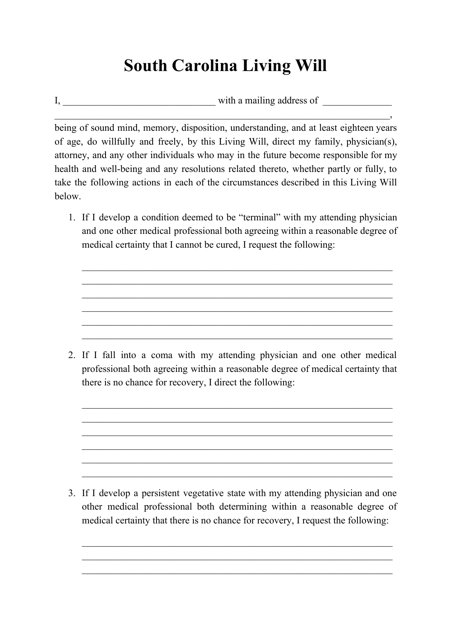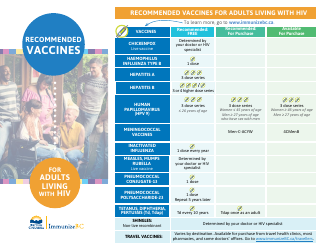Living Will Form - South Carolina
A South Carolina Living Will - sometimes confused with an Advance Directive - is crucial for patients looking for more control over the medical treatment they would want in the event of incapacitation. When a person falls seriously ill with no hope or recovery, arguments concerning artificial life support or certain treatments can arise amongst their family when trying to decide on an outcome.
With a signed and legal will with all wishes clearly stated, the patient can make pre-plan all procedures regarding palliative care, life support, and life-sustaining treatment. The paperwork should be given careful thought and be talked about with the patient's family, physician, and health care providers since they will be tasked with implementing the specified wishes and procedures.
A South Carolina Living Will is defined and regulated by Title 44 (Health) Chapter 66 (Adult Health Care Consent Act) . The will must be signed by two (2) adult witnesses and notarized.
Download a ready-made template by clicking the link below or make your own Living Will with our form builder .
What Is a South Carolina Living Will?
A Living Will is a written, legal document that spells out the medical treatments an individual would and would not want to be used to keep them alive. The form also clarifies the preferences for other medical decisions, such as pain management or organ donation. The person for whom the will is created is called the Principal.
The document may be revoked at any time as long as the Principal still has the mental capacity to do so. The Principal may also elect a trusted individual - or agent - to make decisions on their behalf when they are no longer able to speak for themselves.
How to Make a Living Will in South Carolina?
Difficult health-related situations can occur to any person at any age, so it is a good idea for all adults to have a will. Usually, a basic ready-made Living Will template should address most of the medical procedures common in life-threatening situations, such as resuscitation via electric shock, ventilation, and dialysis. An individual can choose to allow some of these procedures or none of them. They may also indicate whether they wish to donate organs and tissues after death. Even if a person refuses life-sustaining care, they can express the desire to receive pain medication throughout final hours including the related provisions in their Living Will.
When completing a will an individual may appoint an agent - or a health care proxy - to make decisions on their behalf in the event of incapacitation. No notarization is required unless otherwise specifically requested by the proxy.

















